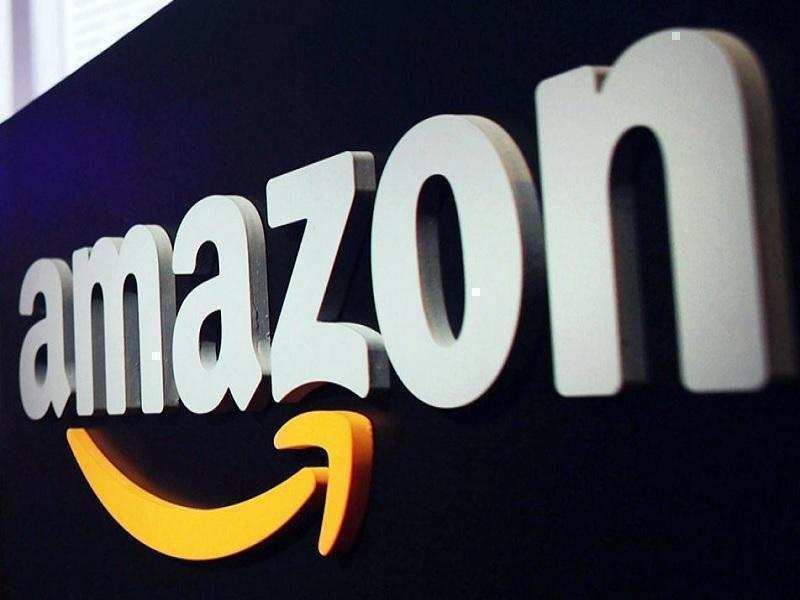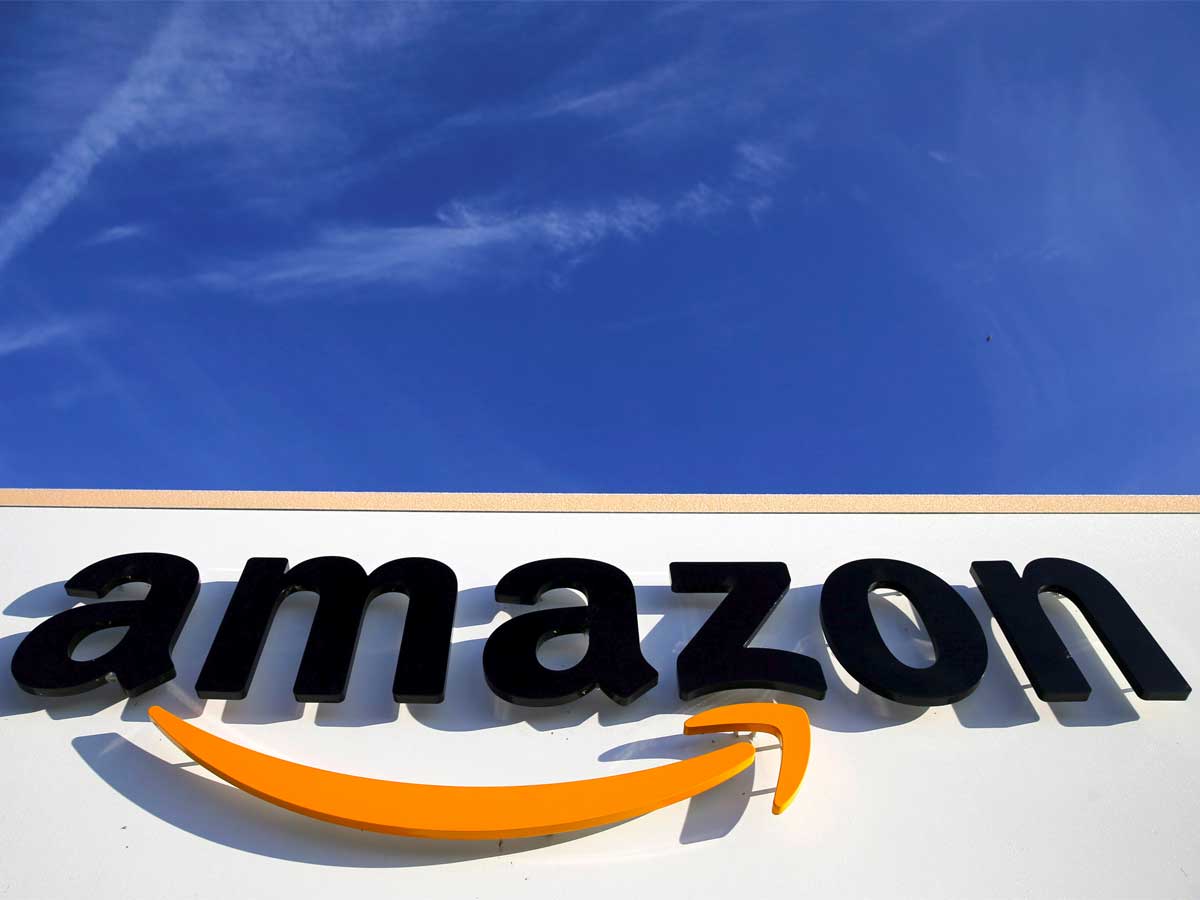New Delhi:  The E-Commerce Council of India (TECI), whose members
include Snapdeal, ShopClues and UrbanClap, Monday suggested that guidelines for protection and processing of user-data managed by online marketplaces should be left to the proposed data protection authority. In its recommendations on the draft National E-commerce Policy, TECI said commercial enterprises should be allowed to utilise the non-personal data generated from users. "TECI has proposed that detailed guidelines for data protection and processing should be left to the Data Protection Authority, expected to be constituted after proposed Personal Data Protection (PDP) Bill 2018 is enacted," it said in a statement. It pointed out that due consideration must be given to the idea that data is not a naturally occurring resource, and an individual does not have an absolute claim over the data he/she generates on a technology platform. "...the right to data protection, the right to be forgotten, the right to prevent any processing of personal, non-anonymized data should be guaranteed, while leaving enough scope for commercial enterprises generating this data to also exploit the benefit of non-personal data," it said. The newly formed TECI includes product and services marketplaces Snapdeal, ShopClues, UrbanClap, Flyrobe and Fynd along with social commerce platform Shop101. It also includes brands like Bewakoof, Breya and Rustorange.
TECI members, between themselves, account for over 7.5 Lakh online sellers and service providers. On the issue of intermediary liability, TECI said emphasises that the role of the marketplaces is distinct from that of the sellers and the brands. "While, e-commerce entities continue to act as an effective partner in the enforcement of law, it is of utmost importance that protection under intermediary liability under Section 79 of the Information Technology Act continue without any dilution for e-commerce entities with regard to the legal obligations pertaining to sellers /brands," it added. The association pointed out that the warrantees and guarantees are the responsibility of the seller, and these should not be shifted to the marketplaces that neither own nor sell the goods. TECI advocated that e-commerce entities should be required to transparently disclose and display the terms of sale and customer rights to refund or replacement. Also, the marketplaces should have a clearly stated consumer grievance redressal process with resolution timelines to be specified by the marketplace. On FDI rules, TECI has asked for incorporation and effective implementation of FDI laws governing marketplaces in the national e-commerce policy. "It has proposed that categorical measures be included in the e-commerce policy to ensure that marketplaces do not act as sellers on the their own platforms, either directly or indirectly," the body said. TECI further said that an entity operating/owning an online marketplace should not permit any entity related to it, directly or indirectly, to buy or sell goods on its own marketplace.
The E-Commerce Council of India (TECI), whose members
include Snapdeal, ShopClues and UrbanClap, Monday suggested that guidelines for protection and processing of user-data managed by online marketplaces should be left to the proposed data protection authority. In its recommendations on the draft National E-commerce Policy, TECI said commercial enterprises should be allowed to utilise the non-personal data generated from users. "TECI has proposed that detailed guidelines for data protection and processing should be left to the Data Protection Authority, expected to be constituted after proposed Personal Data Protection (PDP) Bill 2018 is enacted," it said in a statement. It pointed out that due consideration must be given to the idea that data is not a naturally occurring resource, and an individual does not have an absolute claim over the data he/she generates on a technology platform. "...the right to data protection, the right to be forgotten, the right to prevent any processing of personal, non-anonymized data should be guaranteed, while leaving enough scope for commercial enterprises generating this data to also exploit the benefit of non-personal data," it said. The newly formed TECI includes product and services marketplaces Snapdeal, ShopClues, UrbanClap, Flyrobe and Fynd along with social commerce platform Shop101. It also includes brands like Bewakoof, Breya and Rustorange.
TECI members, between themselves, account for over 7.5 Lakh online sellers and service providers. On the issue of intermediary liability, TECI said emphasises that the role of the marketplaces is distinct from that of the sellers and the brands. "While, e-commerce entities continue to act as an effective partner in the enforcement of law, it is of utmost importance that protection under intermediary liability under Section 79 of the Information Technology Act continue without any dilution for e-commerce entities with regard to the legal obligations pertaining to sellers /brands," it added. The association pointed out that the warrantees and guarantees are the responsibility of the seller, and these should not be shifted to the marketplaces that neither own nor sell the goods. TECI advocated that e-commerce entities should be required to transparently disclose and display the terms of sale and customer rights to refund or replacement. Also, the marketplaces should have a clearly stated consumer grievance redressal process with resolution timelines to be specified by the marketplace. On FDI rules, TECI has asked for incorporation and effective implementation of FDI laws governing marketplaces in the national e-commerce policy. "It has proposed that categorical measures be included in the e-commerce policy to ensure that marketplaces do not act as sellers on the their own platforms, either directly or indirectly," the body said. TECI further said that an entity operating/owning an online marketplace should not permit any entity related to it, directly or indirectly, to buy or sell goods on its own marketplace.
 New Delhi: Alibaba-backed company BigBasket is pumping in USD 100 million (about Rs 698 crore) to strengthen its supply chain by setting up vending machines and smaller distribution centres across various cities it operates in. The online grocery platform -- which is registered as Supermarket Grocery Supplies -- had recently raised USD 150 million in funding, led by Mirae Asset-Naver Asia Growth Fund, CDC Group and Alibaba Group. Founded in 2011, BigBasket operates in 25 Indian cities. It plans to utilise the proceeds of this fundraising - which has placed the Bengaluru-based company in the unicorn club (companies with valuation of USD 1 billion and above) - to further penetrate into existing markets with more investments in the first mile, scaling-up of its supply chain and for developing new reseller channels. "We want to enable two-hour delivery in top 10 cities that we operate in by July this year. For that, we have been investing in strengthening our distribution centres. We have 18 large and 80 smaller distribution centres together with our resellers and this will be ramped to 20 large and 100 smaller ones by June this year," BigBasket co-founder Vipul Parekh told . This move will help BigBasket reduce delivery time and ensure quality of dairy and fresh produce, he added. The company expects its capital expenditure towards these initiatives to be about USD 100 million this year. "We are ramping up our milk subscription business - BB Daily - under which we have built the supply chain to deliver milk and other items in the morning. The service was started around September last year and our sellers already carry out 90,000-100,000 orders a day. We are aiming to take this to a million orders a day and a stronger supply chain infrastructure will play a key role in this," he said. Another area where the company is investing is in towards setting up unmanned vending machines - BB Instant - in office and apartment complexes. "We see a huge potential of these machines. Customers can use their app to access the machine and buy products. The only human intervention is in re-stocking. We have already placed such machines at 200 sites in Bengaluru and over the next one year, we want to have 2,000 such sites across the 10 large cities where we operate," Parekh said. Also, given that these machines are placed within apartment and office complexes, the risk of vandalism is lower. Parekh said with these investments, BigBasket - which competes with SoftBank-backed Grofers as well as Amazon.in and Walmart-owned Flipkart - will continue to build further on its leadership in the grocery business. "We have been re-engineering our supply chain to allow for faster delivery to our resellers and to reduce the time from farm to our customers. This coupled with an expansion in our range of private label products will create a solid foundation for growth in both revenue and profitability," Parekh said. SR ABI SHW SHW
New Delhi: Alibaba-backed company BigBasket is pumping in USD 100 million (about Rs 698 crore) to strengthen its supply chain by setting up vending machines and smaller distribution centres across various cities it operates in. The online grocery platform -- which is registered as Supermarket Grocery Supplies -- had recently raised USD 150 million in funding, led by Mirae Asset-Naver Asia Growth Fund, CDC Group and Alibaba Group. Founded in 2011, BigBasket operates in 25 Indian cities. It plans to utilise the proceeds of this fundraising - which has placed the Bengaluru-based company in the unicorn club (companies with valuation of USD 1 billion and above) - to further penetrate into existing markets with more investments in the first mile, scaling-up of its supply chain and for developing new reseller channels. "We want to enable two-hour delivery in top 10 cities that we operate in by July this year. For that, we have been investing in strengthening our distribution centres. We have 18 large and 80 smaller distribution centres together with our resellers and this will be ramped to 20 large and 100 smaller ones by June this year," BigBasket co-founder Vipul Parekh told . This move will help BigBasket reduce delivery time and ensure quality of dairy and fresh produce, he added. The company expects its capital expenditure towards these initiatives to be about USD 100 million this year. "We are ramping up our milk subscription business - BB Daily - under which we have built the supply chain to deliver milk and other items in the morning. The service was started around September last year and our sellers already carry out 90,000-100,000 orders a day. We are aiming to take this to a million orders a day and a stronger supply chain infrastructure will play a key role in this," he said. Another area where the company is investing is in towards setting up unmanned vending machines - BB Instant - in office and apartment complexes. "We see a huge potential of these machines. Customers can use their app to access the machine and buy products. The only human intervention is in re-stocking. We have already placed such machines at 200 sites in Bengaluru and over the next one year, we want to have 2,000 such sites across the 10 large cities where we operate," Parekh said. Also, given that these machines are placed within apartment and office complexes, the risk of vandalism is lower. Parekh said with these investments, BigBasket - which competes with SoftBank-backed Grofers as well as Amazon.in and Walmart-owned Flipkart - will continue to build further on its leadership in the grocery business. "We have been re-engineering our supply chain to allow for faster delivery to our resellers and to reduce the time from farm to our customers. This coupled with an expansion in our range of private label products will create a solid foundation for growth in both revenue and profitability," Parekh said. SR ABI SHW SHW
Amazon CEO Jeff Bezos’s shareholder letters revealed the words at the top of his mind. Here’s a count of those that fared better than the others.When the world’s richest man puts pen to paper to outline his long-term strategy, it’s a good idea to comb through his words, not just for their strategic wisdom but also for the secrets they reveal. An online business magazine recently ran all of Amazon’s shareholder letters — approximately 44,000 words — through a word cloud generator and the numbers that emerged were interesting, to say the least:443 - The number of times the word ‘customer’ or ‘customers’ appears. For years, Bezos has extolled the virtues of customer obsession. Not only is it one of the cornerstones of Amazon’s business but it’s also the first thing Bezos looks for when investing in a new business.443:28 - The contrast between the number of times Bezos references the Amazon ‘customer’ versus the number of times he uses the word ‘competition’ or some form of it like ‘competitive advantage’. Bezos believes that competitor-obsession is a common trap that many tech companies fall into. In a 2013 interview, he said, “Let’s say you’re the leader in a particular arena, if you’re competitor-focused and you’re already the leader, then where does your energy come from? Whereas, if you’re customer focused, and you’re already the leader, customers are never satisfied. You’re always waking up wondering, how can we make that customer say, wow?”0 - The number of times Bezos mentions the word ‘antitrust’ despite growing congressional concerns that Amazon is behaving like a monopoly and need to be regulated.176 - The number of times Bezos mentions his employees using words like team, people, hiring and associates. In his most recent letter, Bezos challenged rivals to raise their minimum wage. “Today I challenge our top retail competitors to match our employee benefits and our $15 minimum wage,” he wrote. “Do it! Better yet, go to $16 and throw the gauntlet back at us. It’s a kind of competition that will benefit everyone.”1 - The letter ended with a familiar sentiment — “It remains Day 1” — a reminder to employees to make decisions quickly and focus on results, not the process.
 NEW DELHI: Online marketplace Amazon Tuesday said it expects e-commerce exports from India to reach $5 billion by 2023 under its global selling programme."Amazon launched the global selling programme in India four years ago, aligning with this vision. Over the next five years, 'India to Global' has the potential to become huge," Amazon India Country Head Amit Agarwal said in a statement.He said the firm is confident that the "global selling programme will hit the $5 billion mark by 2023 fuelling the growth of lakhs of Indian manufacturers, exporters and small enterprises".The programme started with just few hundred sellers in 2015 and has now crossed $1 billion export mark from India with 50,000 exporters.Amazon in second edition of its annual 'Export Digest' said there has been a growth of 56 per cent in the number of global sellers from India in 2018.It said Amazon's international marketplaces saw a rise of 55 per cent in the selection of Indian products offered globally and 71 per cent growth in sellers. "The Annual Exports Digest showcases top Indian states and cities with international exporters and most popular product categories abroad. Delhi, Rajasthan, Maharashtra, Gujarat, Uttar Pradesh and Haryana emerged as the leading states with most international exporters on Amazon in 2018," the statement said. It added that books, apparel, jewellery, kitchen and health & personal care products witnessed a huge demand from international customers across ethnicities.
NEW DELHI: Online marketplace Amazon Tuesday said it expects e-commerce exports from India to reach $5 billion by 2023 under its global selling programme."Amazon launched the global selling programme in India four years ago, aligning with this vision. Over the next five years, 'India to Global' has the potential to become huge," Amazon India Country Head Amit Agarwal said in a statement.He said the firm is confident that the "global selling programme will hit the $5 billion mark by 2023 fuelling the growth of lakhs of Indian manufacturers, exporters and small enterprises".The programme started with just few hundred sellers in 2015 and has now crossed $1 billion export mark from India with 50,000 exporters.Amazon in second edition of its annual 'Export Digest' said there has been a growth of 56 per cent in the number of global sellers from India in 2018.It said Amazon's international marketplaces saw a rise of 55 per cent in the selection of Indian products offered globally and 71 per cent growth in sellers. "The Annual Exports Digest showcases top Indian states and cities with international exporters and most popular product categories abroad. Delhi, Rajasthan, Maharashtra, Gujarat, Uttar Pradesh and Haryana emerged as the leading states with most international exporters on Amazon in 2018," the statement said. It added that books, apparel, jewellery, kitchen and health & personal care products witnessed a huge demand from international customers across ethnicities.
 Bengaluru: Nearly three months after Amazon.com Inc said India’s revised foreign investment rules would hurt both customers as well as sellers, the e-commerce giant indicated the impact had been minimal in the first quarter of the year, although the claim could not be independently verified in the absence of India-specific revenue or sales data.While the new rules effective February 1 caused a few days of downtime in certain categories, the overall impact on sales was minimal, Amazon told investors in a conference call after announcing its first quarter results on Thursday. “We did make some changes to our structure to stay in compliance with all regulations. There were a few days of downtime for some of our selection. But for the full quarter, the impact was minimal,” chief financial officer Brian Olsavsky said.Amazon’s profit more than doubled in the first quarter to $3.6 billion on sales of $59.7 billion, with its international business growing 9% to $16 billion. More importantly, however, losses in its international business went down significantly to $90 million from $622 million a year earlier, giving it better headroom to invest in cash-burn intensive emerging markets like India.“We’re in compliance and very, very happy with the progress of the business in India,” Olsavsky said during the earnings call. Amazon’s India rival Flipkart, majority owned by Walmart Inc, also told ET recently that the company had not seen any impact with the new regulations kicking in. “We have not seen any issues. We have always embraced the regulatory framework,” Flipkart CEO Kalyan Krishnamurthy said in an interview to this paper.The positive comment came despite a warning to investors by Walmart in its 2019 annual report. The US retailer said “regulatory constraints, such as regulation of product and service offerings including regulatory restrictions on e-commerce offerings in international markets, such as India” could negatively impact its operating results. Amazon and Flipkart have controlled customer experience by keeping their inventory on online marketplaces under check, experts said, adding that both the e-commerce behemoths would rather work around the regulatory changes than tweak this fundamental philosophy. “Regulatory frameworks have been worked around earlier as well,” said Devangshu Dutta, chief executive at consulting firm Third Eyesight, which tracks the retail and consumer product ecosystem.Any public statement by these entities has an element of perception management, Dutta said, adding both Amazon and Flipkart would find a way to cover their margins in the long run even if there is a short term negative impact.In December, the government took a series of measures to tighten the norms for e-commerce companies, barring them from selling products of the entities in which they have a stake. The altered norms also restricted them from mandating any seller to sell products exclusively on their respective platforms. The new rules kicked in from February 1.Amazon divested a part of its holdings in large online seller entities, Cloudtail and Appario, to comply with the changed rules, while Flipkart created a layer of business-to-business entities to act as intermediaries between its wholesale arm and prominent sellers on its platform.
Bengaluru: Nearly three months after Amazon.com Inc said India’s revised foreign investment rules would hurt both customers as well as sellers, the e-commerce giant indicated the impact had been minimal in the first quarter of the year, although the claim could not be independently verified in the absence of India-specific revenue or sales data.While the new rules effective February 1 caused a few days of downtime in certain categories, the overall impact on sales was minimal, Amazon told investors in a conference call after announcing its first quarter results on Thursday. “We did make some changes to our structure to stay in compliance with all regulations. There were a few days of downtime for some of our selection. But for the full quarter, the impact was minimal,” chief financial officer Brian Olsavsky said.Amazon’s profit more than doubled in the first quarter to $3.6 billion on sales of $59.7 billion, with its international business growing 9% to $16 billion. More importantly, however, losses in its international business went down significantly to $90 million from $622 million a year earlier, giving it better headroom to invest in cash-burn intensive emerging markets like India.“We’re in compliance and very, very happy with the progress of the business in India,” Olsavsky said during the earnings call. Amazon’s India rival Flipkart, majority owned by Walmart Inc, also told ET recently that the company had not seen any impact with the new regulations kicking in. “We have not seen any issues. We have always embraced the regulatory framework,” Flipkart CEO Kalyan Krishnamurthy said in an interview to this paper.The positive comment came despite a warning to investors by Walmart in its 2019 annual report. The US retailer said “regulatory constraints, such as regulation of product and service offerings including regulatory restrictions on e-commerce offerings in international markets, such as India” could negatively impact its operating results. Amazon and Flipkart have controlled customer experience by keeping their inventory on online marketplaces under check, experts said, adding that both the e-commerce behemoths would rather work around the regulatory changes than tweak this fundamental philosophy. “Regulatory frameworks have been worked around earlier as well,” said Devangshu Dutta, chief executive at consulting firm Third Eyesight, which tracks the retail and consumer product ecosystem.Any public statement by these entities has an element of perception management, Dutta said, adding both Amazon and Flipkart would find a way to cover their margins in the long run even if there is a short term negative impact.In December, the government took a series of measures to tighten the norms for e-commerce companies, barring them from selling products of the entities in which they have a stake. The altered norms also restricted them from mandating any seller to sell products exclusively on their respective platforms. The new rules kicked in from February 1.Amazon divested a part of its holdings in large online seller entities, Cloudtail and Appario, to comply with the changed rules, while Flipkart created a layer of business-to-business entities to act as intermediaries between its wholesale arm and prominent sellers on its platform.
 The E-Commerce Council of India (TECI), whose members
The E-Commerce Council of India (TECI), whose members  The E-Commerce Council of India (TECI), whose members
The E-Commerce Council of India (TECI), whose members 

